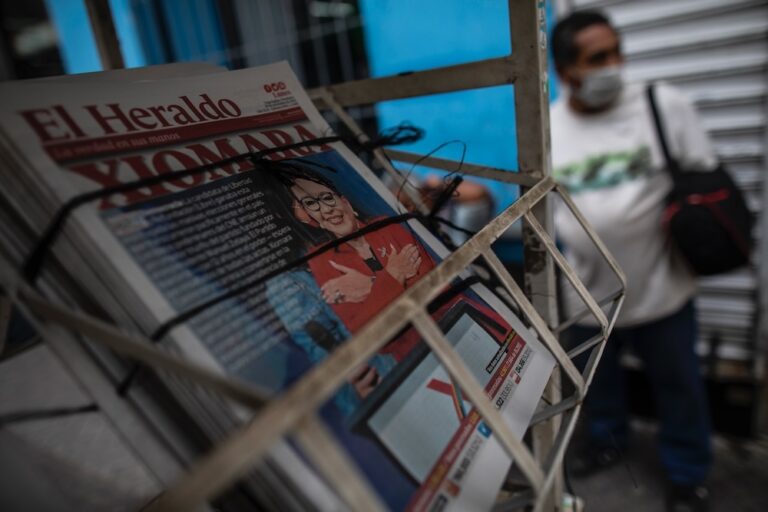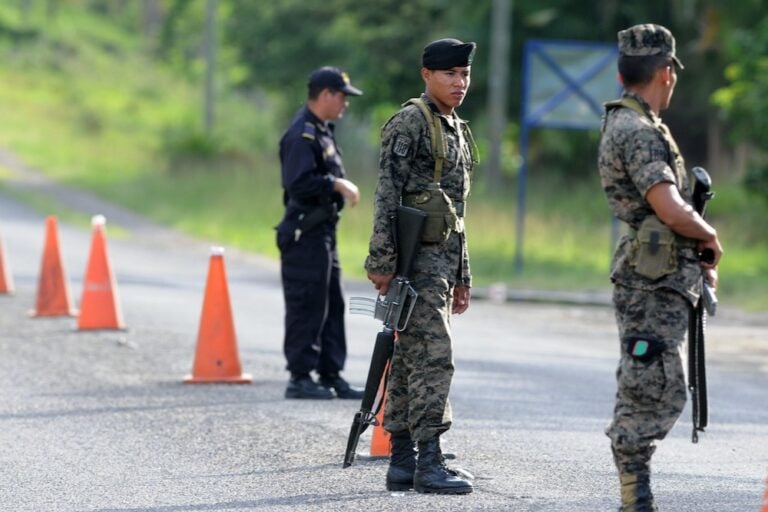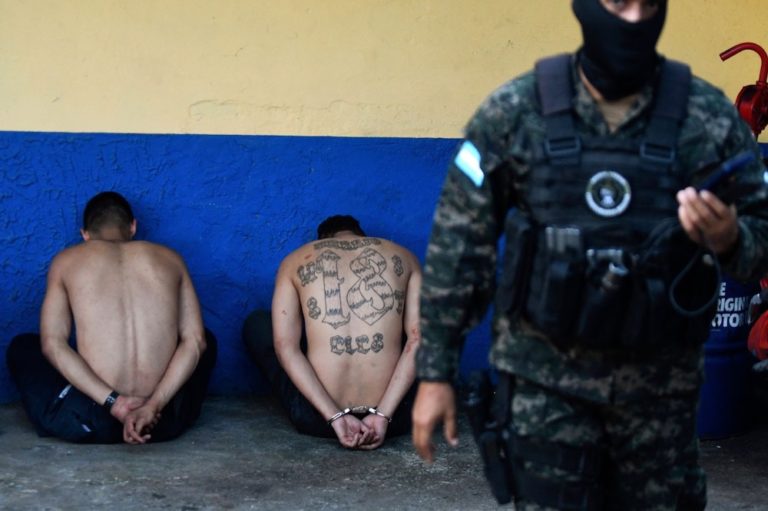Community radio journalist Hernán Cruz Barnica was killed in the department of Copán on 28 May and disc jockey Óscar Anthony Torres Martínez was murdered in Olancho department on 1 June 2014. These are the first journalists to be killed in the country since the inauguration of President Juan Orlando Hernández in January 2014.
The murder of two journalists within four days in Honduras highlights the urgent need for more effective protection to be provided to media workers, says PEN International. Community radio journalist Hernán Cruz Barnica was killed in the department of Copán on 28 May and disc jockey Óscar Anthony Torres Martínez was murdered in Olancho department on 1 June 2014.
These are the first journalists to be killed in the country since the inauguration of President Juan Orlando Hernández in January 2014. PEN is alarmed by the continued climate of fear and persecution which Honduran journalists face on a daily basis. The organisation calls on the authorities to break once and for all the country’s legacy of impunity by expediting a full, impartial and independent investigation into these and all other journalist murders, including full consideration of any possible link with the victims’ profession, and by bringing all those responsible to justice.
‘These latest murders go to show how much further the State of Honduras has to go to protect its journalists,’ said Marian Botsford Fraser, Chair of the Writers in Prison Committee.
‘It is vital that the state establishes an effective protection mechanism for journalists and human rights defenders while also improving the implementation of precautionary measures issued by IACHR.’
Hernán Cruz Barnica, host of ‘Otro Nivel’, a daily programme which included coverage of local human rights issues, for community radio station Radio Opoa, La Voz de la Esperanza, was shot dead in Copán department on 28 May 2014. Radio Opoa was established in July 2013 by ‘Los Chuñas de Opoa’ (‘The Barefoot of Opoa’), a social movement co-founded by Cruz in 2009. An active member of his local community, Cruz also served as a justice of the peace, co-ordinator and member of the National Front of Popular Resistance (Frente Nacional de Resistencia Popular – FNRP) in Opoa, a member of the FNRP’s political wing, Libertad y Refundación (LIBRE), as well as a taxi driver.
According to PEN’s information, the night before he was killed, Cruz had spoken about human rights issues in the region on his programme and threats that he had recently received. He reportedly picked up a customer in his taxi shortly before he was found dead, having been shot three times in the head.
Presenter of several programmes for local music radio stations Patuca Stereo and Doble M Stereo, Óscar Anthony Torres Martínez was shot dead in Palestina, Olancho department on 1 June 2014. The authorities are reportedly working on the assumption that Torres, 24, was the victim of a robbery gone wrong, on the basis of the fact that his body was found with his pockets turned out and that he was not carrying anything of value.
The killings come less than two months after the murder of media worker Carlos Hilario Mejía Orellana, who was stabbed to death at his home on 11 April. The Inter-American Commission on Human Rights (IACHR) had ordered the Honduran government to protect Mejía on a number of occasions; however, the state failed to provide him with effective protection.
The murder of the last journalist to be killed during the previous administration of Porfirio Lobo, Juan Carlos Argeñal Medina, remains unsolved six months later. The journalist’s brother, Mario Argeñal, who has been active in demanding justice for the killing, has been subjected to intimidation and surveillance. Shot dead in his home by unidentified gunmen in December 2013, Juan Carlos Argeñal Medina had covered local government corruption for Vida Televisión, Globo TV and Radio Globo in the months before his death.
According to PEN’s information, at least 40 journalists have been killed since 2003 – 34 since the coup d’état in June 2009. Of these only 10 cases have been prosecuted and just four have resulted in a conviction, according to figures provided by the government during a hearing at the Inter-American Commission on Human Rights (IACHR) on 25 March 2014 in which PEN International, PEN Canada and the International Human Rights Programme of the University of Toronto presented their joint report – Honduras: Journalism in the Shadow of Impunity. Impunity thus remains the norm in 90 per cent of journalist murder cases, a startlingly high rate also confirmed by a report by the new National Commissioner for Human Rights (Comisionado Nacional de los Derechos Humanos – CONADEH) to mark Honduran Day of the Journalist (25 May).
Moreover, many murders where convictions have been obtained may be considered only partially solved owing to the authorities’ failure to prosecute the intellectual authors, or those responsible for ordering the crime. One such example is the killing of Honduran journalist Alfredo Villatoro: although three men have been convicted of carrying out his murder, the intellectual author remains at large. In Villatoro’s case, PEN is concerned by the continued delay in sentencing the three convicted. PEN calls on the Honduran authorities to ensure that all those responsible for journalist murders, including the intellectual authors, are brought to justice.
Attacks and intimidation of journalists also continue unabated in Honduras. Last month, PEN International joined human rights defender and journalist Dina Meza and lawyer Kenia Oliva Cardona in calling on the IACHR to urge the Honduran government to protect TV news presenter Julio Ernesto Alvarado, who has suffered years of threats and judicial harassment. In the light of such intimidation of journalists, PEN urges the authorities to establish an effective protection mechanism in full consultation with civil society.


